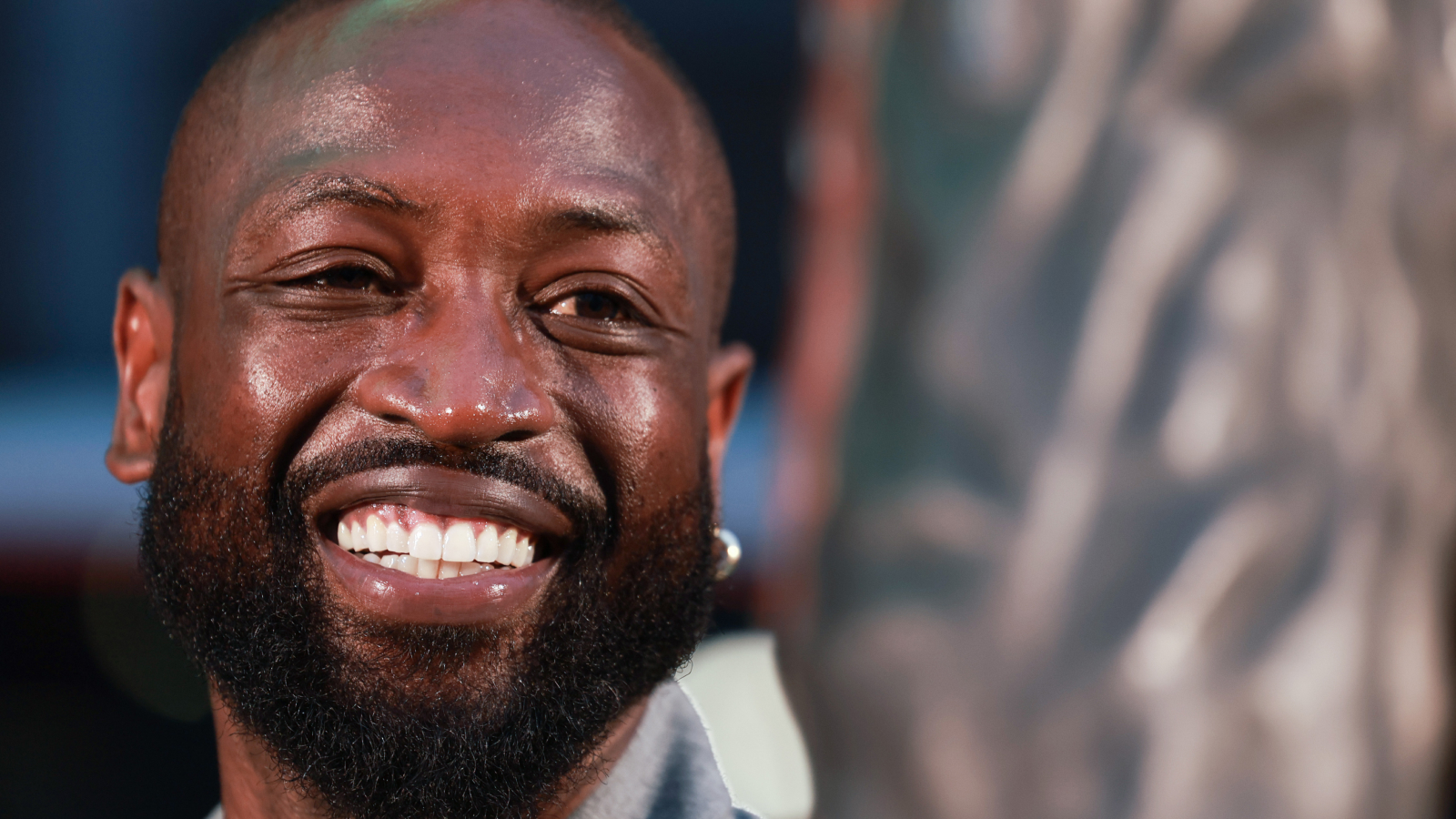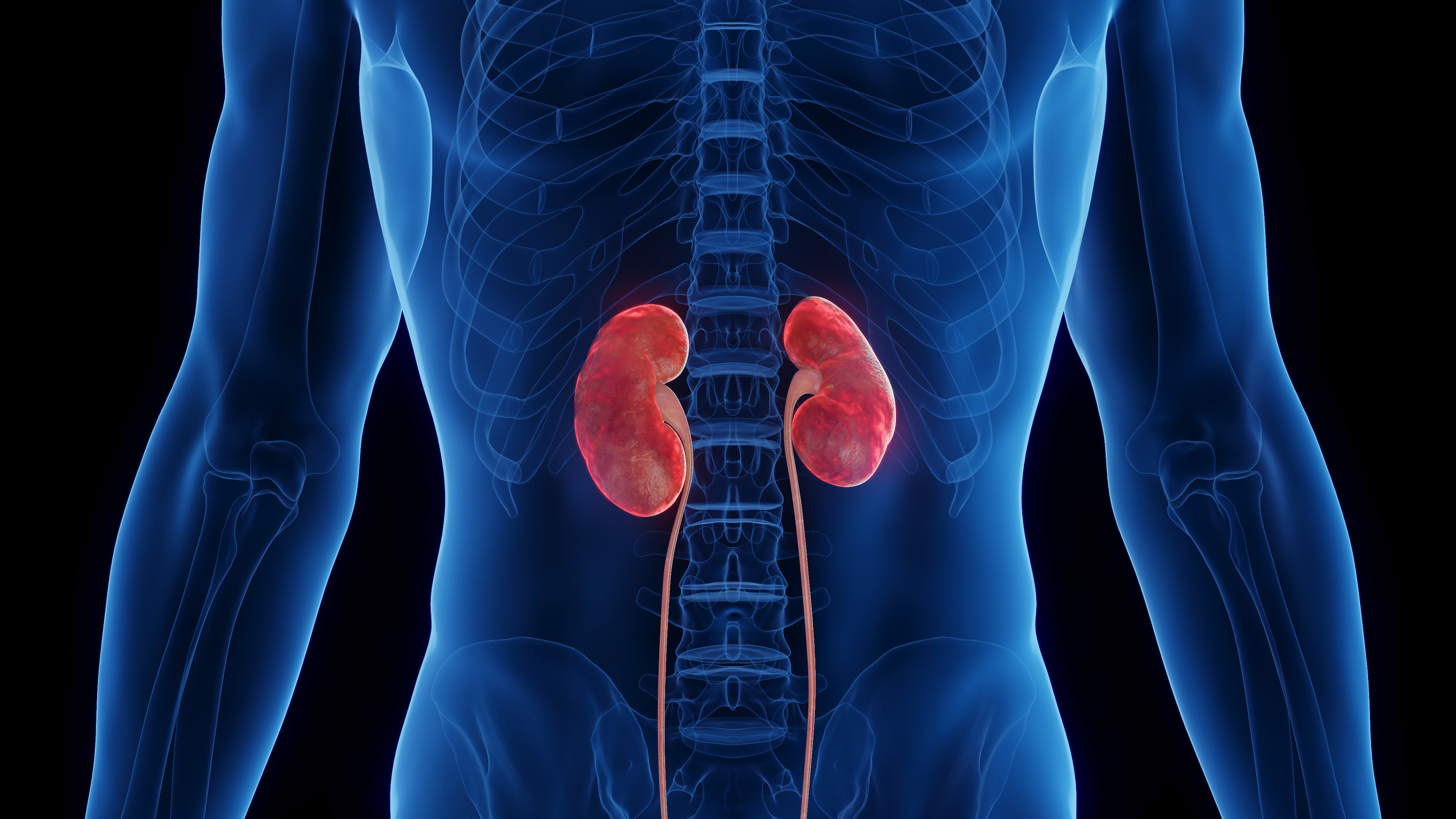Dwyane Wade diagnosis: What to know about kidney cancer
Retired NBA legend Dwyane Wade revealed his kidney cancer diagnosis on a recent podcast episode. Here's what to know about the disease.

Dwyane Wade, a three-time NBA champion, revealed his diagnosis with kidney cancer on a recent episode of his podcast, "The Why with Dwyane Wade."
The retired basketball player, 43, said he went to the doctor for a full-body check-up in 2023, during which a tumor was found on his right kidney. On Dec. 18, 2023, Wade had surgery to remove the tumor — which was found to be cancerous — along with 40% of that kidney, he said in the episode.
Wade said on the podcast that he was doing "great right now," speaking nearly a year after his surgery.
In the wake of Wade's announcement, here's what you should know about kidney cancer.
What to know about kidney cancer
Located on either side of the torso behind the liver and stomach, the kidneys filter waste and excess salt and water from the bloodstream so that it can be removed from the body in urine. Kidney cancer, also called renal cancer, occurs when cells in the kidney grow out of control, forming tumors. In more advanced stages of the disease, these tumors can spread to additional parts of the body.
Related: New treatment for most aggressive brain cancer may help patients live longer

The most common type of kidney cancer in adults is renal cell cancer, which affects the lining of very small tubes in the kidneys, called tubules, according to the National Cancer Institute (NCI).
Sign up for the Live Science daily newsletter now
Get the world’s most fascinating discoveries delivered straight to your inbox.
In 2024, more than 80,000 people in the U.S. were newly diagnosed with cancer of the kidneys or renal pelvis — funnel-like structures at the center of each kidney that collect urine to transport it to the bladder. Approximately 14,000 people died from the disease, according to the NCI.
It is estimated that roughly 1.8% of adults will be diagnosed with the condition at some point during their lifetime, NCI reports.
However, kidney and renal pelvis cancers have relatively high survival rates. An estimated 78.1% of people diagnosed with the disease survive for five years post-diagnosis — a statistic known as the "five-year relative survival rate." Although kidney cancer made up 4.1% of new cancer cases in the U.S. in 2024, it contributed to only 2.4% of that year's cancer deaths, the NCI estimates.

On the podcast, Wade said of the moment he was diagnosed: "That moment was probably the weakest point I've ever felt in my life." But, "in that process of my weakness, I found strength in my family, in my friends, in my group."
Wade had frequent health check-ups as an athlete, but those regular physicals had come to an end after he retired. He said he was motivated to go back to see a doctor after his father was diagnosed with prostate cancer.
Wade's symptoms at the time included stomach cramps and slow and weak urination, he said. Kidney cancer may not cause any symptoms at first, but in time, other symptoms can include blood in urine, persistent tiredness, recurrent fever, low appetite, unexplained weight loss and a lump or swelling in the kidney area or abdomen, according to the U.S. Centers for Disease Control and Prevention (CDC).
People are more at risk of the disease if they smoke, have overweight or obesity, have high blood pressure, take certain pain medicines for a long time, have certain genetic conditions or have kidney stones. In addition, having sickle cell trait — meaning you carry one copy of the genetic mutation behind sickle cell — or experiencing a long-lasting infection with hepatitis C can raise the risk. Exposure to a chemical called trichloroethylene, used to remove grease from metal, also carries a risk, according to the CDC.
Rates of kidney cancer also increase with age, with the highest rate seen in people ages 75 to 79, based on recent data.
Different treatment options are available depending on the stage of the cancer. Wade underwent surgery to physically remove his tumor and some of his kidney — called a partial nephrectomy — but in other cases, the entire kidney may be removed.
Alternatively, doctors can use radiation therapy against later-stage kidney cancer, which uses high-energy x-rays to kill cancer cells — or they may use immunotherapy, which aims to help the body’s immune system identify and fight the cancerous cells itself.
The podcast episode was recorded at a men's health retreat called TimeOut. Earlier in the conversation, Wade encouraged men to take time to focus on their own health and to "check in" on their male friends and relatives.

Hatty is a freelance journalist. She previously worked as Food and Nutrition Reporter at Newsweek, where she often wrote about health and science topics more generally. Before that, she was staff writer at Optimum Nutrition and wrote for the Independent, Fit&Well and Time & Leisure. Hatty has a Freelancing for Journalists Award, a Gold-Standard NCTJ and a History degree from the University of Cambridge.
You must confirm your public display name before commenting
Please logout and then login again, you will then be prompted to enter your display name.









